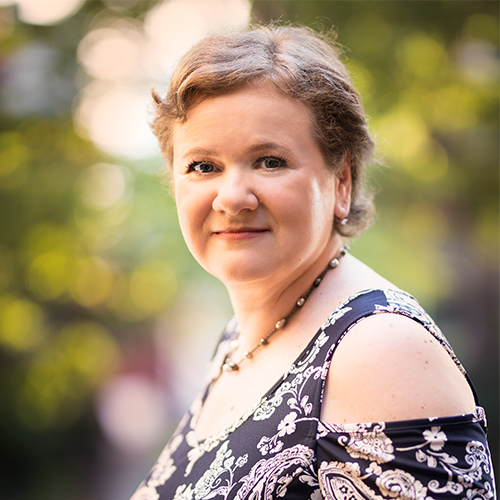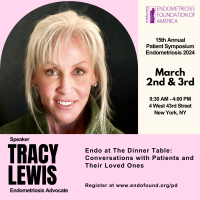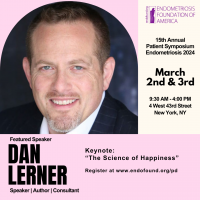
Although endometriosis typically infiltrates the reproductive organs, bowels, and bladder, the disease has other horrifying manifestations. Albeit rare, endometriosis can silently kill function in one or both kidneys. It's called ureteral endometriosis, or endometriosis involving the ureters, the conduits that link the kidneys and the bladder. If endo wraps around one or both ureters, it can cause swelling in the kidney and, left untreated, kidney loss. A 2012 study estimated that out of 100,000 endo women with ureteral endo, 25-50 percent would have loss of kidney function, and "an unknown number will then have loss of the kidney."
Elina Kharnak is one of the unlucky unknown; in April, she learned her frightening kidney endo diagnosis when it was too late.
Born and raised in Kiev, Ukraine, and moving to Brooklyn, N.Y. when she was 10, Kharnak endured painful periods from the day her menstrual cycle began at age 13.
“I missed school. I would have to cover my bed with a hospital liner the first two days of my period because it was ridiculously heavy,” Kharnak, 49, tells The Blossom.
As the years went on, Kharnak easily conceived her two children, one in 2002, the other in 2004, but tried for six years for a third child and miscarried in 2010. After that heartbreak came constant abdominal pain and severe back pain that would radiate down her left leg to her knee.

She Googled her symptoms for years, went to physical therapy for her back pain and was told by multiple doctors she did not have endometriosis. In fact, one OB-GYN said she couldn’t possibly have the disease because her back was hurting—not her pelvic area.
“He actually, specifically told me to stop practicing 'Google medicine,'” Kharnak recalls. “It was an extraordinarily disappointing appointment.”
RELATED: Think You May Have Endometriosis? Signs and Symptoms You Shouldn't Ignore
However, in September 2017, an ultrasound revealed she had hydronephrosis of the kidney and loss of cortex. Not knowing what that meant, she then saw a urologist who did a CAT scan and a renal function test and confirmed her worst fears: she had absolutely no function in her left kidney.
“When my kidney failed, I actually started looking for endo specialists myself,” Kharnak said. “I read a lot of stories that endo is impossible to diagnose. Someone needs to believe you. I searched for endo specialists in New York City, and that's how I came across Dr. Tamer Seckin.”
In April, she was on Seckin's operating table for a 10-hour long operation.
The diagnosis? Stage IV Endometriosis, the most extensive expression of the disease, and adenomyosis, a condition in which the lining of the uterus bursts through the muscle wall of the uterus. “I had nodules on my bladder and on my bowel." Her kidney had swelled to four times its normal size and was beyond saving. Endometriosis, "throttled my kidney. It attacked my ureter, and it killed my kidney. When I had my surgery, not only did we have to do excision, but I had a [total] hysterectomy. I lost my uterus, my [fallopian] tubes, my ovaries, my cervix and my left kidney. That had to go too. [Endometriosis] is deadly and it's silent.”
If there were such thing as a Stage V endo patient, Seckin told Kharnak she'd be it.
Surgery was smooth, recovery not as much. The finance executive says she just returned to work after taking a 12-week long short-term disability leave. And, she says she's still adjusting to life with one kidney.
“I have to see a nephrologist every six months. I check my blood pressure every other day,” said Kharnak, who is more prone to hypertension and UTI's now.
“But day to day," she says, "I'm actually, really trying to lead a normal, happy life. I'm much more mobile again. I'm a tough cookie.”









